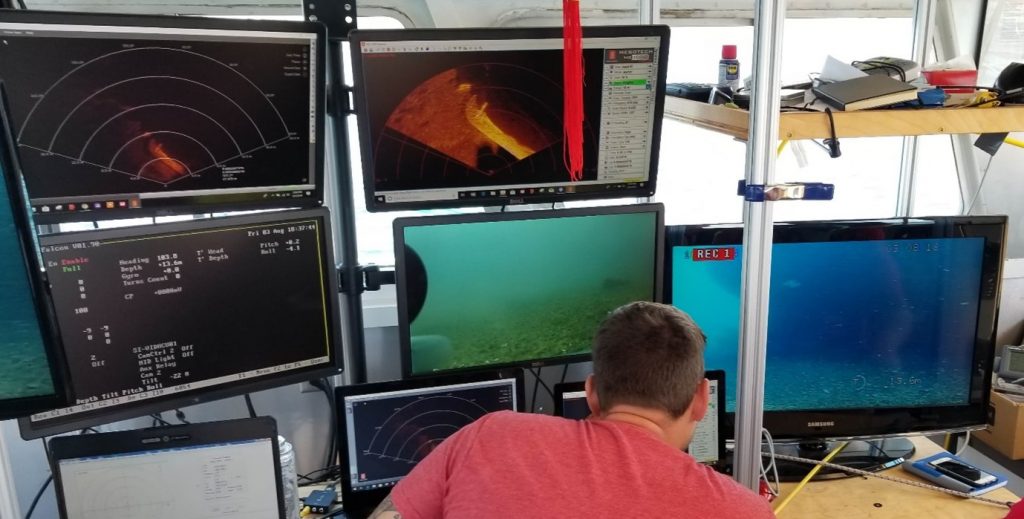This article was written by Ed Baily, Director of the Marine Center at Northwestern Michigan College, a 20Fathoms Community Partner.
The Great Lakes region represents 27% of the combined US and Canadian population and 28% of the Canadian and US economic activity. It holds 21% of the world’s freshwater and supplies 40 million people with drinking water on both sides of the Canada-US border. The ecosystem is facing a variety of issues including the deterioration of water quality, waterborne microplastics, invasive species, habitat destruction, and the impacts of climate change. Solving these complex problems across such a large watershed will require ingenuity, innovation, and collaboration. Addressing these issues will require an understanding and knowledge of the waters within the watershed.
“Knowledge drives innovation, innovation drives productivity, productivity drives economic growth.” – William Brody
According to the Great Lakes Commission, the Great Lakes region has a combined gross domestic product (GDP) of over $6 trillion, which is roughly 40% of the US GDP. The region is also home to more than 30 million jobs, and the Great Lakes ports handle more than 160 million tons of cargo each year. Yet less than 15% of the Great Lakes have been mapped with high-resolution technologies. We know more about the surfaces of the Moon and Mars than the bathymetry of the Great Lakes.

Bathymetric mapping supports innovation by providing the foundational data required to develop new technology-based solutions for addressing the environmental and economic challenges facing the Great Lakes region. Innovation and new technologies can solve challenges but also drive economic development in several ways:
- Resource Management: New technologies and innovative management practices can help to improve the sustainable use of the Great Lakes’ natural resources and support thriving fisheries, tourism, and all water-dependent activities.
- Environmental Remediation: Innovative technologies can more effectively clean up pollutants and restore habitats, opening up new economic opportunities in the region, from remediation and restoration employment to eco-tourism and sustainable land development.
- Climate-resilience: New technologies and innovation are needed to mitigate climate impacts and enable communities, organizations, and enterprises in the region to be more resilient and future-proof new investments to the region.
- Advanced Manufacturing: The Great Lakes region is built on a strong manufacturing base. Embracing new and better technologies, innovative processes, and automation can ensure these historic pillars of the economy are at the forefront of technological and economic growth.
- Smart City: Innovation and new technologies can support the development of smart cities which can improve the quality of life for residents, attract new businesses, and drive economic growth.
Establishing a feeder system for innovation will require collaboration among researchers, industry, government, and communities. It would also involve investing resources and supporting entrepreneurs, and creating partnerships and networks to share knowledge and best practices. The AquaHacking Challenge – Great Lakes is a technology-focused program that provides an immersive leadership training program for early career professionals, designed to accelerate collaborative innovation and advance ideas in support of the Great Lakes and the freshwater ecosystem. It is a program designed to turn ideas into business solutions.
Northwestern Michigan College and its partners are leading the effort to both map the Great Lakes (Lakebed 2030) and provide a platform for innovation and economic development in the Great Lakes. For more information or to get involved with either of these critical programs contact the Marine Center at Northwestern Michigan College.
About the author: Ed Bailey is the Director of the Marine Center at Northwestern Michigan College and is part of a large group of partner organizations working on supporting innovation and technology development in Traverse City, Michigan. To reach Ed, feel free to contact him at ebailey@nmc.edu or 231.995.1215.

